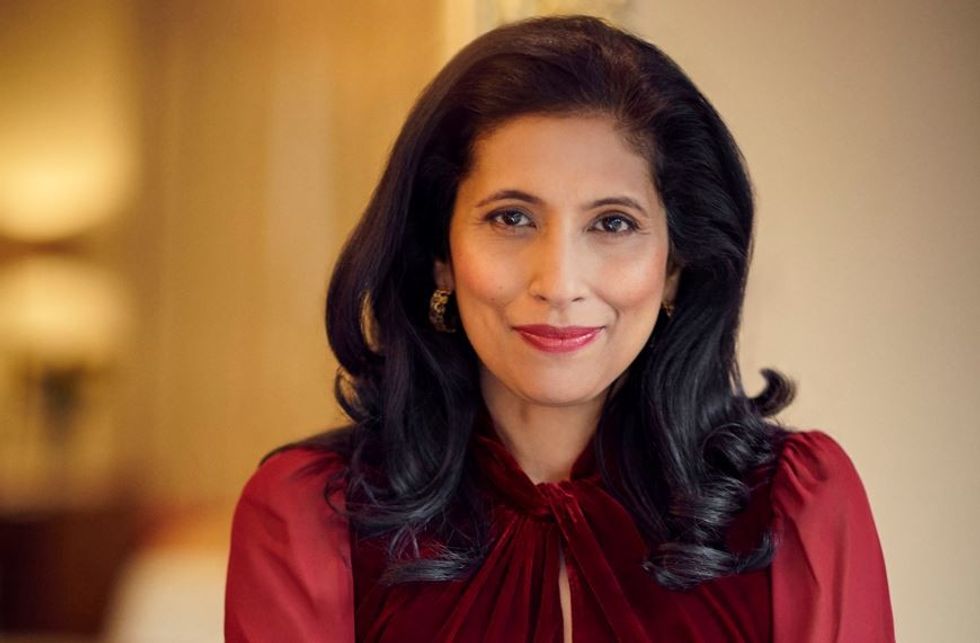A former investment banker's organisation wants to change the low numbers of female business leaders in FTSE-100 firms.
Tara Cemlyn-Jones' organisation 25x25 has set itself an ambitious target: to get 25 women at the head of the 100 biggest businesses in the UK by 2025.
Currently, there are just nine female chief executives on the FTSE-100, the index of leading firms on the London Stock Exchange. Two years ago, it was six per cent. But in the wider FTSE-350 index, the figure is even worse -- just five per cent. On Wall Street, female chief executives make up six per cent of the S&P 500 while in France, there are currently three women heading firms listed on the CAC-40.
Cemlyn-Jones helped in the financing of start-ups including lastminute.com."We specifically wanted to tackle the CEO position because we felt it was the only way to get women into the executive stream compared to non-executive positions where a lot of work has already been done," said Cemlyn-Jones.
One recent study showed that in the last 10 years women's representation on the boards of FTSE-100 companies had jumped from 12.5 per cent to 39.1 per cent.
"Women are already in the system, they're just not making it to the role of CEO," Cemlyn-Jones said.
Quota imposed by legislation
In France, which has been leading the way, 43.8 per cent of posts on the boards of CAC-40-listed companies are women. That followed legislation that imposed a quota of at least 40 per cent.
Also Read | Bina Mehta among inspirational women recognised at the GG2 Leadership and Diversity Awards
"In the UK there hasn't been a tradition of imposed quotas," said Cemlyn-Jones.
Yet the country has still more women on boards than countries such as Norway, which pioneered such quotas, and is currently third behind France and the UK on 38.2 per cent.
UK progress has notably been spurred by government statistics and reports, which have been put in the public domain, which have forced companies to act.
But for Cemlyn-Jones, for women's progress to bear fruit, they need to be in decision-making roles.
"At the N-2 level you have a lot of very qualified women," she said.
"They are not making it to CEOs because maybe they haven't been given the right opportunity at the right time.
"If you're head of a profit centre you may be better equipped and have more chance to become CEO" than a woman who is a company secretary, she added.
"Part of our process is to make sure women are given the opportunity to be on those pathways," she explained.

Companies to work towards diversity
25x25 current has 20 members and plans to add 30 more soon.
They include the oil giant BP, NatWest bank, headed by Alison Rose -- so far the first and only woman to head a bank in the City -- Unilever, GSK, BAE Systems and ITV.
Companies signed up promise to work towards parity and more broadly for diversity.
"These are companies that are believing they are not getting the best of their talent, and ESG (environmental, social and corporate governance) has become more important of an issue," said Cemlyn-Jones.
Members have to prepare a plan which takes into account its female workforce, with career paths that qualify for the chief executive role, plus targets, monitoring and support.
"It needs to be sustainable for 10 years," she said, to ensure the possibility of a female line of succession for generations to come.
"It has to be the CEO that takes responsibility because it has to come from the top," she added.
Jennie Daly in February became the first woman to head up a UK housebuilding company when she was appointed chief executive of Taylor Wimpey, joining Irene Dorner who has been head of the board since 2020.
"Another good example is Leena Nair, CEO of Chanel," she added.
Nair was former head of human resources at Unilever before joining the French luxury goods and fashion house.
(AFP)




















